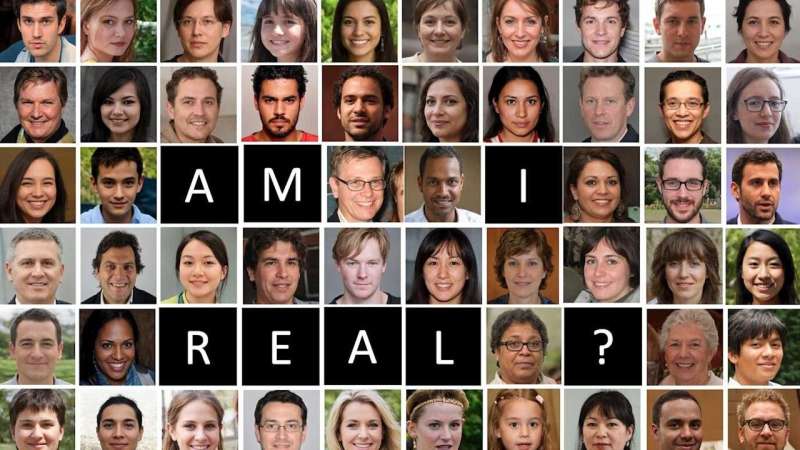Science & technology, UK (Commonwealth Union) – The emergence of new technologies capable of blurring the lines of fake and real, often with the use of Artificial Intelligence (AI) is likely to be further enhanced in the coming years ahead.
A new study has found that people currently have an increased chance of perceiving artificially generated faces as real than the real ones. This may lead them to be more likely to trust “fake” agents but may also, eventually, wear away social trust.
The research, On the Realness of People Who Do Not Exist: The Social Processing of Artificial Faces, lab was led by Professor Manos Tsakiris from the Department of Psychology at Royal Holloway, and the study was led by Dr Raffaele Tucciarelli at the Warburg Institute, School of Advanced Study, made participants see a series of faces that either were of real people or were AI generated.
The participants were requested to judge if the faces were real or not, made an interesting finding that was observed where GAN (Generative Adversarial Networks) faces had an increased chance of being perceived as real over the actual people.
The findings point to the recent advances in the technology applied in producing artificial images, with a significant increase over the last 10 years of GAN technology, bringing about incredibly realistically appearing faces today.
Gan faces are realistically appearing pictures of non-existing people that are produced by a computer. The people depicted in these images are non-existent in the present or in history. More of their use has been seen in marketing, journalism and social media, but in some instances malicious purposes, like political propaganda and espionage.
The findings are essential as they have significant social consequences, the recent exposure of many mainstream media outlets with bias has already eroded peoples trust in the media and in many parts of the world trust in the mainstream media is at an all-time low hence these findings will put further pressure on people to make judgements on the reliability of the information they are exposed to.
Further rapid use of fake images and videos is transforming the cultural visual landscape from being primarily truthful to possibly being deceptive. The question of what medium is trustworthy is becoming particularly relevant.
As a result of this, the same team of researchers moved on to demonstrate, in a separate study, that participants had an increased chance place their trust in the information presented by faces they had judged to be real on prior occasions, even with the possibility of them being artificially generated.
Professor Manos Tsakiris, Professor of Social and Affective Processes at Royal Holloway, who is a Director of the Centre for the Politics of Feelings at the School of Advanced Study lab as well, led the study, indicating that many have argued that a major casualty to AI will result in the erosion of trust in things we see and hear.
“As we show in our study, the realness that people project onto artificial faces makes them more likely to be trusted as informational sources, but later, when people realise there are AI images out there, their whole trust of any information given to them is drastically reduced.”
“This could lead to people disengaging with messages given to them in the future as they do not know who or what to trust. Educating audiences about such technologies and advancing their digital literacy may make us less gullible but at the same time it may make us, in general, less trusting.”
Dr Raffaele Tucciarelli, who recently finished his research at the Warburg Institute, says “Our results show that people’s biases in perceiving artificial faces as real can then make them more gullible to information conveyed by such artificial agents.”








